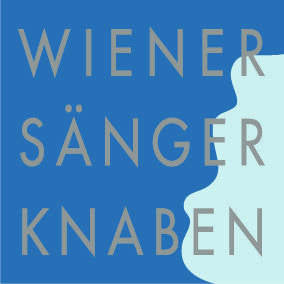Boys began singing at the Viennese Court in the 14th century. In 1498, more than five hundred years ago, the Holy Roman Emperor Maximilian I moved his Court and his Court musicians to Vienna. He gave instructions that there were to be six boy singers among his musicians; those boys came from different parts of the Holy Roman Empire, from The Netherlands, Italy, Germany and Austria. Historians have settled on 1498 as the foundation year of the Vienna Hofmusikkapelle (Chapel Imperial) and, in consequence, of the Vienna Boys’ Choir. Until 1918, the choir sang exclusively for the Imperial Court, during mass, at concerts and private functions and on State occasions.
Musicians including Heinrich Isaac, Philippe de Monte, Heinrich Ignaz Franz Biber, Johann Joseph Fux, Wolfgang Amadeus Mozart, Antonio Caldara, Antonio Salieri, Christoph Willibald Gluck and Anton Bruckner all worked with the choir. The composers Jacobus Gallus and Franz Schubert were themselves choristers. The brothers Joseph and Michael Haydn were members of the choir at Stephansdom, and frequently sang with the Imperial Boys’ Choir.
In 1918, following the collapse of the Habsburg Empire, the Austrian Government took over the Court opera, its orchestra and the adult singers, but not the boys’ choir. Josef Schnitt, who became Dean of the Imperial Chapel in 1921, turned the Vienna Boys’ Choir into a private institution. There were insufficient funds to pay for the boys’ upkeep, and the choir started to give concerts outside the chapel in 1926, performing motets, secular works and – at the boys’ request – children’s operas.
Today there are one hundred choristers from thirty-one different nations between the ages of ten and fourteen, divided into four touring choirs. Between them, the four choirs give around three hundred concerts and performances each year before almost half a million people. Each group spends nine to eleven weeks of the school year on tour. They visit virtually all European countries and they are frequent guests in Asia, Australia and the Americas. Since 2001 the Vienna Boys’ Choir has been led by Gerald Wirth.
The Vienna Boys’ Choir has a close association with the Wiener Philharmoniker. Together with members of the orchestra and the men of the Wiener Staatsoper Chorus, the choir boys maintain the traditions of the Imperial musicians: as the Hofmusikkapelle they provide the music for the Sunday Mass in Vienna’s Imperial Chapel, as they have done since 1498. Both the choir and the Chapel Imperial have a long tradition of commissioning new works, dating back to Imperial times when composers like Mozart, Haydn and Bruckner wrote for the ensemble. Austrian composers Heinz Kratochwil, Balduin Sulzer, Wolfram Wagner and Gerald Wirth have written works for today’s boys. Benjamin Britten penned a vaudeville which could be performed on tours, and Australian composer Elena Kats-Chernin wrote her Land of Sweeping Plains for them.
The Vienna Boys’ Choir performs major choral and symphonic works. In recent years, they have performed with the Wiener Philharmoniker, the Wiener Symphoniker, the London Philharmonic, the Staatskapelle Berlin, the Oslo Philharmonic and the Pittsburgh Symphony Orchestra. Over the last decade, the choir has worked with Pierre Boulez, Nikolaus Harnoncourt, Mariss Jansons, Zubin Mehta, Marc Minkowski, Riccardo Muti, Kent Nagano, Seiji Ozawa, Christian Thielemann, Franz Welser-Möst and Simone Young among others. The choir also takes part in opera performances at the Wiener Staatsoper, the Wiener Volksoper and the Salzburg Festival.
Over the last decade, the choir has performed a number of new operas. Gerald Wirth’s The Journey of the Little Prince and The Tablet of Destinies, an opera based on the Babylonian myth of Anzu, and Raoul Gehringer’s Moby-Dick after the novel by Herman Melville were all shown at Vienna’s Musikverein. Gerald Wirth’s Der Bettelknabe (The Begging Boy) , a story set in medieval Palestine and Europe, was first performed in 2010, and again in 2015 and 2016 at the choir’s own concert hall, MuTh. In 2016, the choir participated for the sixth time in the New Year concert of the Wiener Philharmoniker which was conducted by Mariss Jansons.
For more information, please go to the www.wienersaengerknaben.at


